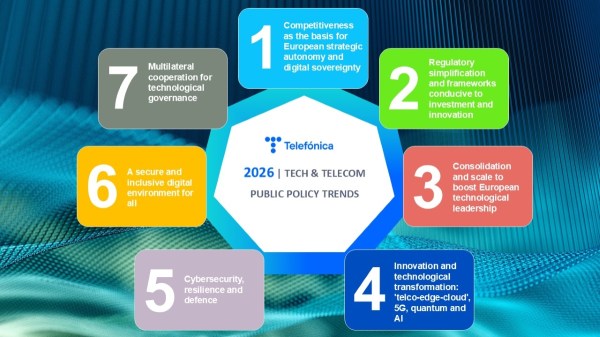 Jonny Shipp
Jonny Shipp
Director of Public Affairs at Telefónica
Like others, Telefónica continues to collaborate enthusiastically to provide expert advice and guidance to empower parents and children to make the internet a better place for kids. But industry standards and interoperability may be the needed to enable a market for technical solutions that can help keep children safe online.
What do parents actually want?
In 2010, to establish its approach to Digital Confidence, Telefónica undertook extensive qualitative and quantitative customer research in its European Markets (Czech Republic, Germany, Ireland, Slovakia, Spain and the United Kingdom). It asked, for its consumer customers, what are the drivers of trust and confidence in digital environments?
Online Child Safety was very important to Telefónica’s customers. From this work it is clear that what they actually want and need is:
- Expert advice and guidance for parents, teachers and children about child online safety, and
- Access to technologies that can help to keep their children safe online.
Expert advice and guidance
Telefónica has been collaborating for many years to help raise awareness of online child safety issues.
Each year since it started in 2003 it has led a range of initiatives to promote European Safer Internet Day including staff volunteering in schools, harnessing it extensive customer communication channels and contributing to conferences and online events.
In 2008 we co-founded the Interactive Generations Forum[1], a non-profit organization that has researched children’s use of communications technologies by conducting a survey in more than 5,000 schools in ten countries. Based on this, it has published 12 books, and trained more that 50,000 people to help build a safer, better, Internet.
This year, the Interactive Generations Forum published Y tu kn ers? a Spanish edition of the children’s story book Who wnts 2 no? which was first published by Telefónica UK in 2009 and has been a popular resource in UK schools[2].
It’s a fun story in a traditional format for parents to read with their children. It’s about Dud, a boy who thinks he’s found a foolproof way of getting rich quick. All he has to do is put his personal details online. What could possibly go wrong? His friends Zip and Mouse aren’t convinced: they want to know, who wants to know?
Telefónica is actively contributing to the CEO Coalition to make the internet a better place for kids, leading work to make the reporting of things on the internet that might be harmful to children much easier and more effective.
Access to technologies to help keep children safe online
Telefónica’s customers clearly expect technology leaders to offer technology solutions to the challenge of keeping children safe online. For parents this means genuinely helpful technical tools of a kind that are not yet fully available. The expectations of parents in this respect are not being fully met. There are three possible reasons for this.
First, parents have other priorities. When prompted they are of course concerned about grooming, cyber bullying or inappropriate content. But in their busy lives they are probably more immediately concerned about creating family time away from computers, enforcing bed times or encouraging physical activity. Parents don’t tend to have very much spare time. So to be genuinely helpful, technologies will need to be much simpler and less time consuming to use.
Second, children keep changing, and they grow up at different ages. To support digital parenting, technology based tools need to be adaptable to the changing needs of children and parents. The age of a child is a helpful starting point for configuring a level of protection, but it can only be a staring point. It must be interpreted and adjusted by parents in line with social expectations and the maturity of the child. To be genuinely helpful, technologies will need to be adaptable and designed to support parenting.
Third, the current offers in the market are way too fragmented. Technical tools tend to be narrow and platform or device specific. Parents can, if they wish:
- Control access to content on the web, an app store, a PVR, a games console…
- Monitor browsing, chat, friends, contacts, messaging, call logs, location, and be alerted to possible issues or specified activities.
- Each of these may be available in the home, or only in relation to some particular access points or types.
To be genuinely helpful technology solutions will need to be comprehensive, going beyond any particular platform or screen
Providing the best experience for all users
The challenge is that for technical tools to be attractive for parents, they must be:
- Simpler and less time consuming for parents, and
- More adaptable and designed to support parenting, and
- Comprehensive – going beyond any particular platform or screen.
Any company with the resources and commitment to excellent product design could deliver the first two of these requirements, simplicity and adaptability. But it may be that industry standardization and interoperability will be a necessary condition for the creation of comprehensive technical solutions, which are therefore genuinely helpful to parents.
And of course, if a product or service is genuinely helpful, then customers will pay a fair price to have it. Telefónica Digital is working to deliver this vision. It is a global business division of Telefónica dedicated to seizing the opportunities within the digital world, and keen to collaborate on industry standards that can open up new markets and drive new growth for Telefónica
[1] www.generacionesinteractivas.org
[2] www.o2.com/thecybernuts








